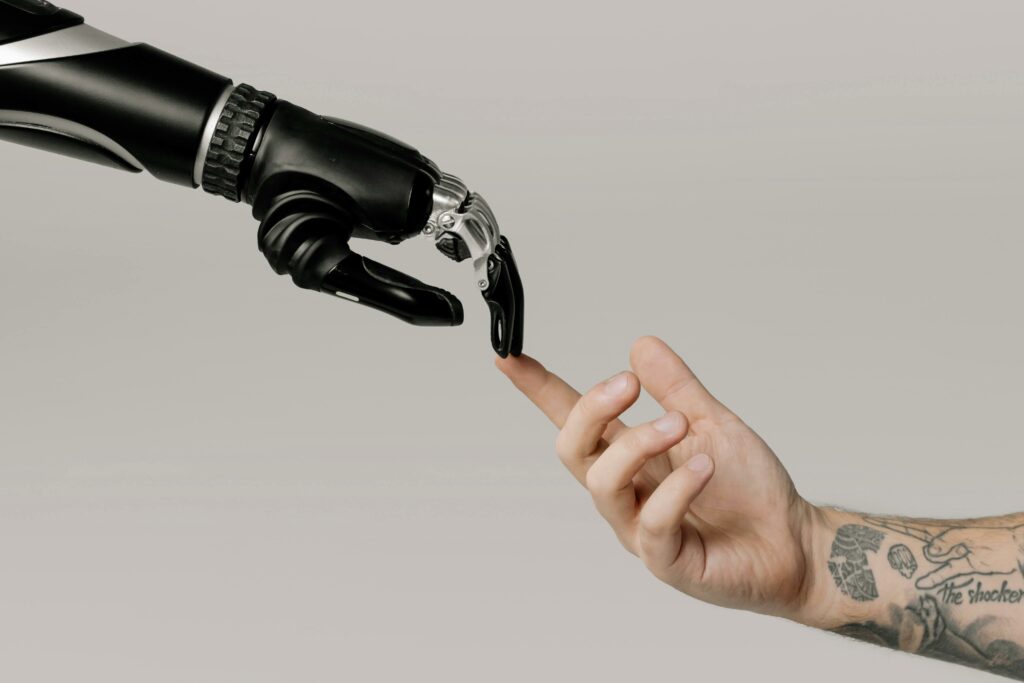Artificial intelligence (AI) and automation are reshaping the business landscape, driving efficiency, innovation, and growth across industries. From enhancing customer service to optimizing supply chains, AI automation is transforming how companies operate, compete, and interact with customers. This article explores the multifaceted impact of AI automation on modern business practices.
Streamlining Operations with Automation
The Challenge
Imagine an e-commerce business that handles hundreds of orders daily. Traditionally, this business might employ several staff members to manage inventory, process orders, handle customer inquiries, and perform marketing tasks. Despite their efforts, manual processes often lead to errors, delays, and higher operational costs.
The Solution: Implementing Automation
By integrating automation tools like Zapier and Make, the business can streamline various operations. Here’s how these tools can be applied:
- Order Processing and Inventory Management: Using Zapier, the business can automate order processing. For instance, every time an order is placed on their website, Zapier can automatically update inventory levels, generate an invoice, and send a confirmation email to the customer. This eliminates manual data entry and reduces the risk of errors.
- Customer Service: Integrating chatbots powered by AI, such as those available through ManyChat or Chatfuel, can handle customer inquiries 24/7. These chatbots can provide instant responses to common questions, process returns, and even upsell products based on customer preferences.
- Marketing Automation: Make can automate marketing workflows by connecting various apps and services. For example, when a new customer signs up for the newsletter, Make can automatically add their information to the CRM, trigger a welcome email series, and update marketing analytics dashboards.
Emerging Automation Apps
Several new and emerging automation apps are enhancing business efficiency:
- Make: Make offers powerful visual workflow automation, allowing businesses to connect apps and automate complex workflows. It supports a wide range of applications and is particularly useful for businesses looking to automate multi-step processes.
- Zapier: Zapier connects over 3,000 apps, making it easy for businesses to automate repetitive tasks. With its user-friendly interface, businesses can set up “Zaps” (automated workflows) without any coding knowledge.
- Automate.io: Another robust automation platform that integrates with numerous apps, enabling businesses to automate tasks such as lead generation, CRM updates, and social media management.
The Impact of Automation
By implementing these automation processes, the e-commerce business experiences several benefits:
- Time Savings: Automation handles repetitive tasks, freeing up staff to focus on strategic activities. This can save hundreds of hours annually.
- Cost Reduction: With fewer manual processes, the business reduces the need for extensive staffing and minimizes errors, leading to lower operational costs.
- Improved Accuracy: Automation ensures tasks are completed correctly every time, reducing errors in order processing, inventory management, and customer communications.
- Scalability: Automated processes can easily scale with the business, handling increased workloads without the need for proportional increases in staff.

Real-World Example
A real-world example is Zapier’s own case studies which highlight businesses like Airtable, which used Zapier to automate customer support workflows, saving them significant time and allowing them to handle more support tickets efficiently. Another example is HubSpot, which uses automation to streamline their marketing and sales processes, resulting in more personalized customer interactions and higher conversion rates.
AI automation is not just a trend; it’s a transformative force changing the way businesses operate. Tools like Zapier, Make, and other emerging automation apps empower businesses to streamline their operations, save time, reduce costs, and scale efficiently. By embracing automation, businesses can stay competitive in a rapidly evolving market, focusing on strategic growth and innovation rather than getting bogged down by repetitive tasks.
By implementing these strategies, the e-commerce business can transform its operations, achieving greater efficiency, accuracy, and customer satisfaction. As AI and automation technologies continue to advance, the potential for further improvements and innovations in business processes is vast, promising a future where businesses can operate more seamlessly and effectively than ever before.
Enhancing Customer Service
AI-Powered Chatbots and Virtual Assistants
One of the most visible impacts of AI automation is in customer service. AI-powered chatbots and virtual assistants are now common on websites, handling customer queries, providing information, and even assisting in purchases. These AI systems, such as those used by companies like H&M and Bank of America, are available 24/7, providing instant responses and reducing the need for large customer service teams (HubSpot Blog) (Adweek).
For instance, H&M uses a chatbot on its website to assist customers with product searches, returns, and general inquiries. This not only improves customer satisfaction by providing quick and accurate responses but also allows human agents to focus on more complex issues.
Personalized Customer Interactions
AI tools enable businesses to deliver highly personalized customer experiences. By analyzing customer data, AI can tailor recommendations, marketing messages, and even product designs to individual preferences. Amazon and Netflix are pioneers in this area, using AI to suggest products and content based on past behaviors and preferences, thereby enhancing user engagement and loyalty (HubSpot Blog) (Adweek).
Optimizing Supply Chains
Predictive Analytics and Inventory Management
AI automation is transforming supply chain management through predictive analytics and real-time data processing. Companies like DHL and Walmart use AI to forecast demand, manage inventory levels, and optimize logistics operations. By analyzing historical data and market trends, AI systems can predict stock shortages or surpluses, ensuring that inventory is maintained at optimal levels and reducing waste (MacRumors).
For example, Walmart’s use of AI-driven predictive analytics helps the retailer anticipate customer demand, streamline inventory management, and enhance the efficiency of its supply chain. This has resulted in significant cost savings and improved customer satisfaction due to better product availability.
Autonomous Vehicles and Robotics
In addition to predictive analytics, AI is enabling the use of autonomous vehicles and robotics in supply chains. Companies like Amazon and FedEx are experimenting with AI-powered drones and self-driving delivery vehicles to speed up and automate the delivery process. These technologies not only reduce the need for human intervention but also improve delivery times and efficiency (HubSpot Blog) (Adweek).

Transforming Marketing Strategies
AI-Driven Content Creation
AI is revolutionizing content creation by generating high-quality marketing materials at scale. Tools like Copy.ai and Jasper.ai use natural language processing to create blog posts, social media updates, and advertising copy. This automation allows marketers to produce large volumes of content quickly, ensuring consistency and relevance across all marketing channels (Republic World).
For instance, Jasper.ai can generate personalized marketing emails based on customer data, helping businesses engage with their audience more effectively. This not only saves time but also enhances the precision and effectiveness of marketing campaigns.
Customer Insights and Behavioral Analysis
AI enables businesses to gain deeper insights into customer behavior and preferences. By analyzing data from various sources, AI tools can identify patterns and trends that inform marketing strategies. Companies like Coca-Cola and Unilever use AI to understand consumer sentiment, track campaign performance, and adjust their strategies in real-time (HubSpot Blog) (MacRumors).
Boosting Operational Efficiency
Process Automation
AI-driven process automation is streamlining business operations across industries. From automating routine tasks to managing complex workflows, AI tools are enhancing productivity and reducing operational costs. Industries such as finance, healthcare, and manufacturing are particularly benefiting from AI automation (Adweek) (HT Tech).
For example, in the finance industry, AI-powered bots can handle tasks like invoice processing, fraud detection, and financial reporting, allowing human employees to focus on higher-value activities. In healthcare, AI systems assist with patient data management, diagnostic support, and personalized treatment plans, improving patient outcomes and operational efficiency.
Decision Support Systems
AI is also enhancing decision-making processes within organizations. AI-driven decision support systems analyze vast amounts of data to provide actionable insights and recommendations. This helps business leaders make informed decisions quickly, improving strategic planning and execution (Republic World) (MacRumors).
Innovating Product Development
AI-Enhanced R&D
AI is transforming research and development (R&D) by accelerating innovation and reducing time-to-market for new products. Companies like Tesla and IBM are using AI to simulate and test new product designs, optimize manufacturing processes, and predict market trends (HubSpot Blog) (HT Tech).
For instance, Tesla uses AI to enhance its electric vehicle designs and optimize battery performance. By leveraging AI-driven simulations and predictive analytics, Tesla can innovate more rapidly and efficiently, maintaining its competitive edge in the automotive industry.
Conclusion
AI automation is fundamentally changing the way businesses operate, offering unprecedented levels of efficiency, scalability, and innovation. From enhancing customer service and optimizing supply chains to transforming marketing strategies and boosting operational efficiency, AI is enabling businesses to stay competitive in a rapidly evolving market. As AI technology continues to advance, its impact on business practices will only grow, opening up new opportunities and reshaping industries across the globe.
